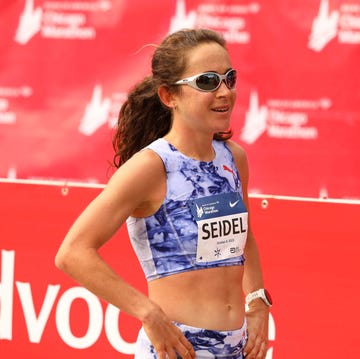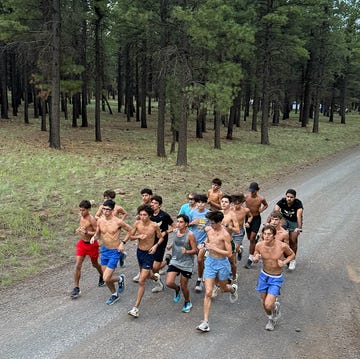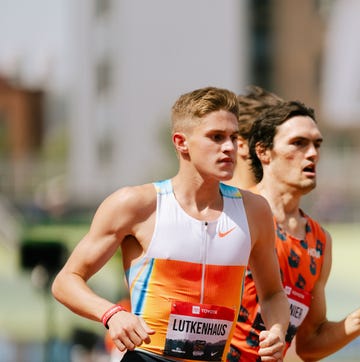Jerome Drayton, the Canadian who won the Boston Marathon in 1977 and knocked Bill Rodgers and Frank Shorter off the top of the world marathon rankings, died on February 10 at age 80. He died in Toronto, unexpectedly, a few weeks after knee surgery.
Drayton won the prestigious Fukuoka Marathon in Japan (then effectively the world championship) three times, was sixth in the 1976 Olympic marathon, second in the Commonwealth Games marathon in 1978, and third at Boston in 1974, in addition to his famous 1977 victory. With a best of 2:10:09, he was consistently among the world’s top marathoners in the 1970s.
Rodgers spoke by phone to his old rival and friend on his 80th birthday four weeks ago.
“I always liked and admired Jerome for his great determination, his professionalism, and his pride at representing Canada,” Rodgers told Runner’s World. “We talked about the day we dueled at the Spring Bank Road Race in London, Ontario, a race we both loved. Canada has lost a terrific citizen.”
A heavy cold afflicted Drayton at the 1976 Olympics in Montreal, where he was sixth, and his hopes for success at the 1980 Moscow Olympics were thwarted when Canada joined the American-led boycott.
Drayton was born Peter Buniak, in Germany, of Ukrainian and Russian parents, moving to Toronto with his mother at age 11. In October 1969, Drayton first set the Canadian record, when he ran 2:12:00 in Detroit. He lowered that mark twice more, and the 2:10:09 he ran at Fukuoka in 1975 stood as the record until Cam Levins broke it in 2018 by running 2:09:25. In all, Drayton held the Canadian record for 49 years.
Levins told Runner’s World in a text message that Drayton called to congratulate him after his run in 2018. “It was really awesome, because basically the conversation was him offering up advice on what he thought I could improve on from a training and racing standpoint, which I really appreciated,” Levins wrote. Levins has since lowered the record to 2:05:36.
A reticent man who usually eluded the media, Drayton won notoriety at Boston in 1977 for his acerbic comments about the race’s then-primitive operations, especially the total failure to provide water. After an indignant outcry, his criticisms were noted, and 1978 marked the beginning of an improved era in Boston’s provision for its runners.
Correction:
A previous version of this story misstated the time of Drayton’s death in relation to his knee surgery. He did not die during surgery, but a few weeks after the surgery.

Roger Robinson is a highly-regarded writer and historian and author of seven books on running. His recent Running Throughout Time: the Greatest Running Stories Ever Told has been acclaimed as one of the best ever published. Roger was a senior writer for Running Times and is a frequent Runner’s World contributor, admired for his insightful obituaries. A lifetime elite runner, he represented England and New Zealand at the world level, set age-group marathon records in Boston and New York, and now runs top 80-plus times on two knee replacements. He is Emeritus Professor of English at Victoria University of Wellington, New Zealand, and is married to women’s running pioneer Kathrine Switzer.














